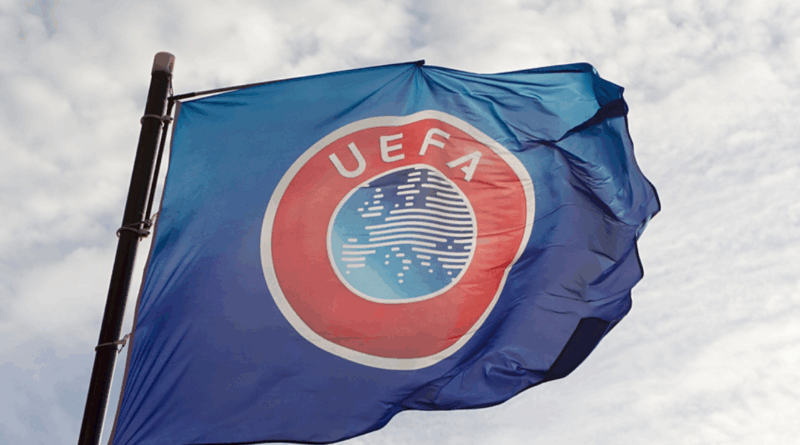UEFA expands list of banned international fixtures
The upcoming tournament, co-hosted by the United States, Mexico, and Canada, will feature 48 teams, including 16 from Europe. Twelve European nations will qualify automatically as group winners, while the remaining four places will be decided through playoffs involving group runners-up and Nations League teams that failed to qualify directly.
According to UEFA’s official competition procedures, the list of restricted fixtures was updated before the qualifying draw on 13 December 2024, ensuring politically sensitive pairings were kept apart for safety and diplomatic reasons.
Politics on the pitch
Among the barred matchups are Ukraine vs. Belarus, Kosovo vs. Bosnia and Herzegovina, Kosovo vs. Serbia, and Spain vs. Gibraltar. UEFA confirmed that these nations were intentionally separated during the draw to avoid potential flashpoints rooted in decades of political tension.
The decision to keep Ukraine and Belarus apart stems from Belarus’ support for Russia in the ongoing war. Despite public pressure from several European governments and football associations to exclude Belarus entirely, UEFA has allowed them to continue competing. The team currently remains in Group C, alongside Scotland, Greece, and Denmark.
Read also: John Cena completes epic journey to WWE Grand Slam glory
Meanwhile, Russia has been suspended from all UEFA and FIFA competitions since 2022 and is limited to playing friendly matches. Even before the invasion of Ukraine, both nations had been barred from meeting in competitive fixtures due to longstanding hostilities.
Kosovo’s complicated football history
Kosovo, which declared independence from Serbia in 2008, continues to face restrictions against facing Serbia, Bosnia, and Russia. These bans originate from the Balkan conflicts of the late 1990s and the complex diplomatic status of Kosovo’s independence.
Similarly, Armenia and Azerbaijan remain prohibited from facing one another amid tensions over the Nagorno-Karabakh region. The hostility has occasionally spilled into football — most notably in 2019, when Armenian midfielder Henrikh Mkhitaryan opted not to travel to Baku for the Europa League final due to safety concerns.
Although the two nations have never met in an official fixture, diplomatic progress may be on the horizon. Reports from Reuters and BBC Sport indicate that talks could resume following a peace agreement signed in Washington last year.
Read also: England star says he won’t speak to Donald Trump at 2026 World Cup
Spain and Gibraltar: A continuing dispute
Another longstanding divide exists between Spain and Gibraltar, which prevents the two from facing each other in any UEFA competition. Gibraltar, a British Overseas Territory at the southern tip of the Iberian Peninsula, is not recognized by Madrid as a separate footballing entity — a dispute dating back decades.
The issue resurfaced after Spain’s Euro 2024 victory, when players Álvaro Morata and Rodri were suspended for one match after chanting “Gibraltar is Spanish” during post-tournament celebrations. UEFA stated that their actions breached its code of conduct by using a sporting event for political expression.
The current list of banned fixtures
According to UEFA’s published competition guidelines, the following fixtures remain prohibited until political conditions improve:
- Spain vs. Gibraltar – Territorial dispute over sovereignty
- Armenia vs. Azerbaijan – Ethnic and territorial conflict
- Kosovo vs. Serbia – Historical and political dispute over independence
- Kosovo vs. Bosnia and Herzegovina – Bosnia’s alignment with Serbia in the Kosovo War
- Kosovo vs. Russia – Russia’s political backing of Serbia
- Russia vs. Ukraine – Ongoing war and severed diplomatic relations
- Ukraine vs. Belarus – Belarus’ support for Russia amid the conflict
UEFA has stated that these prohibitions will remain in effect “until further notice,” emphasizing that any reconsideration will depend on a measurable easing of regional tensions.
Read also: Inside Bayern Munich’s wage structure: Who earns what at the German giants
As international football continues to intertwine with global politics, UEFA’s balancing act between sport and diplomacy looks set to continue well beyond the 2026 World Cup.
Sources: UEFA official competition rules; Reuters; BBC Sport; SPORTbible.
Read also: Premier League publishes full VAR dudio from Van Dijk’s disallowed goal




